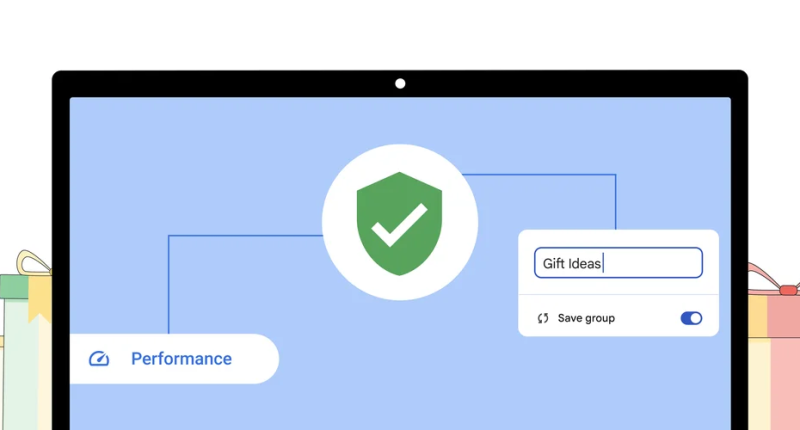In its ongoing effort to bolster user security and improve the overall browsing experience, Google has introduced significant updates to its Chrome browser. These updates encompass a range of features, from the automatic background run of the Safety Check to the capability of saving tab groups across devices.
A notable enhancement in the recent Chrome update is the automatic background run of the Safety Check feature. Traditionally initiated by users, Safety Check now operates continuously in the background, monitoring the internet for potential security threats. This approach ensures that users receive prompt alerts if any of their saved passwords are compromised, significantly reducing response time to security vulnerabilities.
The Safety Check feature has evolved beyond password security, now providing comprehensive alerts accessible through Chrome’s three-dot menu. These alerts cover various issues, including compromised passwords, potentially harmful extensions, outdated Chrome versions, or site permissions requiring attention. A noteworthy addition is the automatic revocation of permissions from sites that users haven’t visited in a while. This multifaceted approach contributes to a more secure and streamlined browsing experience.
“Safety Check for Chrome on desktop will now run automatically in the background. You’ll get proactively alerted if passwords saved in Chrome have been compromised, any of your extensions are potentially harmful, you’re not using the latest version of Chrome, or site permissions need your attention. These alerts will appear in the three-dot menu in Chrome so you can take action. We’re also extending Safety Check to revoke sites’ permissions — like access to your location or microphone — if you haven’t visited them in a long time. And Safety Check will now flag if you’re getting a lot of notifications from sites you don’t engage with that much, so you can easily disable them,” Sabine Borsay, Group Product Manager, Chrome, wrote in a blog post.
Apart from having Safety Check automatically run in the background, Google Google has also introduced the ability to save tab groups in Chrome. This feature, set to roll out gradually, streamlines the organization and access of tab groups across various desktop devices. Users can now enjoy a more unified browsing experience, with the convenience of accessing curated tab groups effortlessly. And last but not the least, Google is offering a glimpse into the future, teasing the integration of features powered by Gemini, its new AI model, into Chrome early next year. While details remain undisclosed, the integration of AI-driven functionalities hints at potential advancements in user customization, efficiency, and predictive capabilities within the browser. The tech community anticipates the unveiling of Gemini’s impact on shaping the future of browsing within the Chrome ecosystem.
The Tech Portal is published by Blue Box Media Private Limited. Our investors have no influence over our reporting. Read our full Ownership and Funding Disclosure →






